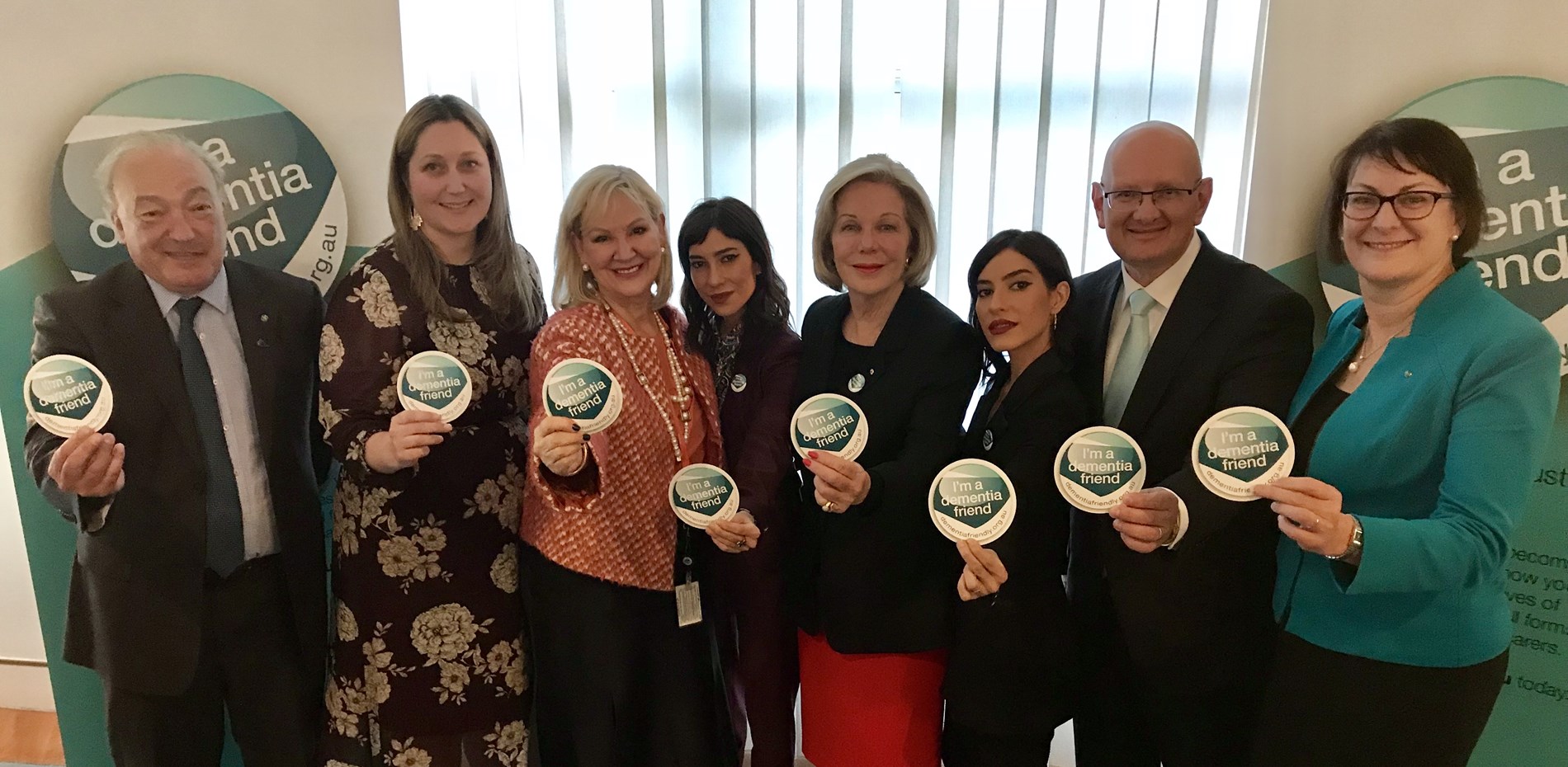(Image taken at a Dementia Australia event pre-COVID-19)
I'd like to thank the member for Perth and the member for Curtin for bringing this motion on this very important matter, dementia, before the House. Australia has an ageing population, and there are about half a million people in Australia with dementia, and that's expected to increase pretty markedly over the next decade. It is also one of the most common causes of death, being the commonest cause in females and second most common in males. As the member for Perth has noted, as the number of people with dementia increases the call on services is expected to rise accordingly. According to Dementia Australia, 1.6 million Australians are involved in the care of people living with dementia. While the disease can occur in anybody, it is of course more common in those over 65 years of age. This tragic syndrome affects so many Australians directly and indirectly. It will continue to be a real drain on our productivity unless we can get the management right.
People with dementia don't do very well in different surroundings. They really like to be in familiar surroundings. Therefore it's very important that we keep people with dementia at home. If we are going to do that, we need to make sure our workforce is dementia trained and properly skilled. Secondly, we need to put in place services that support people with dementia in ways that are perhaps secondary to what people might imagine. As they age, people with dementia can have things like hearing loss, visual impairment and continence difficulties. Unless we address those issues, their lives will be made much more difficult, and it will be much more difficult for their carers and much more difficult to support them, particularly in aged-care surroundings. So we must make sure that people, as they age, and particularly those with dementia, have access to services. My personal view is that people over the age of 65 should be eligible for the NDIS. I think that that is something that would make a huge difference in our management of people with dementia.
Secondly, we must make sure that our respite services are able to provide carers with support and enough respite to enable them to continue to care for their loved ones with dementia in their own homes or in familiar surroundings. The number of people living with dementia is obviously much higher in cities, and it's easier to provide services in large population areas, but we must also think of those with dementia who live in rural, regional and remote areas. We must provide services for them in rural and remote areas. We must make sure that those who are receiving home care for dementia are provided with the services that they need to maintain good health. I certainly agreed with the member for Perth when he said that we should be doing much more to foster dementia-friendly communities. It's in the interests of all of us, both socially and economically, to do so.
I looked into the Memory Cafe that the member for Perth mentioned. I think that sounds like a really terrific idea. It's something that we should be supporting around the country. I'd like to thank those in my own community of Macarthur who are providing terrific services for those with dementia—organisations such as Meals on Wheels, Myrtle Cottage and Macarthur Disability Services. I would like to acknowledge their work and their support for people with dementia living in my electorate.
As the member for Curtin mentioned, dementia has not just one cause. There are over 100 different causes of dementia. The most familiar, of course, is Alzheimer's disease, but it can be caused by a variety of other conditions. Early diagnosis is key, and access to early diagnosis and proper aged-care plans are very important to the family of a loved one who has dementia. We must get this right, and we must get better at recognising early dementia and providing services for people with early onset dementia. It can be a difficult thing to do, and loved ones often face resistance from the person in care to the diagnosis of dementia, but we need to support all those involved in care and providing support, from our GPs to our community nurses and support organisations. The National Dementia Helpline is a great point of contact for those facing these difficulties. I thank the members for bringing this very important matter to the House.



